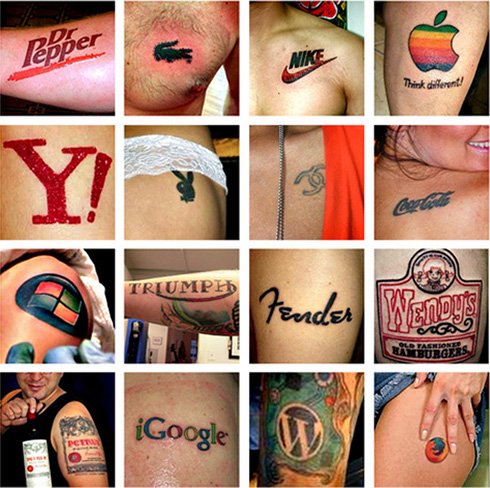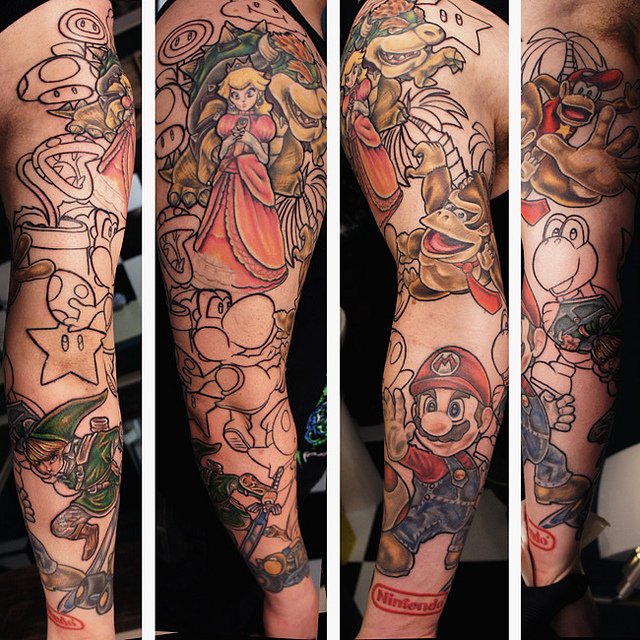THE BIG IDEA: Outperforming CEOs love to know about their customers and position their business for the most profitable opportunities. How to foster brand loyalty and create customer evangelists is the important topic of today’s article.
__________________
Despite the conventional wisdom that brand loyalty is on the decline, a new study by IBM Institute illuminates that brand loyalty is still critical, albeit more challenging to cultivate.
In the spirit of the curse of knowledge, we will pretend you never heard the term “brand loyalty.” We offer this article as a reference guide for you and your executive team. Feel free to share it with your colleagues.
Brand Loyalty Definition
Brand loyalty occurs when customers become committed to a particular brand. They develop affinity for the brand.
Loyal customers consistently do business with their preferred brands, often without evaluating convenience or pricing factors. These loyal customers are also more likely to tell their friends and family about the brand (called word of mouth), creating a low-cost stream of new customers.
Loyalty Doesn’t Happen By Accident
Companies that foster brand loyalty go to great lengths to understand their customers needs and meet those needs better than anyone else.
These companies seek to create customer evangelists, or what we call Brand Lovers. Creating Brand Lovers requires diligent effort on the part of executives to adopt a highly customer-centric approach to marketing, product development, and operations.
Cult Brands are those businesses that foster an unusual level of brand loyalty among their patrons. Apple Brand Lovers, for example, don’t consider a PC as a viable alternative. Harley-Davidsonevangelists don’t see any alternatives to buying and riding a Harley.
Five Factors that Influence Loyalty to a Brand
Numerous factors and psychological processes involved in influencing customers’ relationship with your brand:
-
Repeat Purchasing Behavior: How often does a customer buy from you?
-
Commitment: How long has a customer been committed to doing business with you?
-
Perceived Value: How much value does a customer perceive in your offering?
-
Brand Trust: How much trust does a customer have in your brand?
-
Customer Satisfaction: How satisfied is a customer with the overall brand experience?
Four Types of Loyalty
Marketing professor Philip Hotler suggest four groups of customer types that demonstrate similar behavioral patterns in respect to brand loyalty:
-
Hard-core Loyals: Customers who buy exclusively from a brand.
-
Split Loyals: Customers loyal to two or three brands in a particular category.
-
Shifting Loyals: Customers who move from one brand to another.
-
Switchers: Customers with no sense of loyalty to any brand.
Three Customer Mindsets
There are three primary customer mindsets important to understanding the factors behind brand loyalty. Every customer engages in all of these behaviors at different points throughout their lives.
-
Transactional Mindset: Logic-driven thinking that weighs the options and makes the most optimal decision in the moment.
-
Relational Mindset: Although logic still plays a role, in a relational mindset, feelings primarily drive purchasing decisions.
-
Loyal Mindset: Decisions based on deeply-held values and ideals.
Our Brand Loyalty Continuum
In over a decade of experience tracking brand loyalty, our firm has identified similar patterns of behavior among customers as defined by Philip Kotler:
-
Brand Lovers: Customers your brand is especially for; those customers who love you the most and who may not perceive any alternative to your offering. Brand Lovers have an emotional investment in your brand.
-
Brand Enthusiasts: Customers who have a favorable impression of your brand but don’t necessarily have any investment or deeper connection to your brand.
-
Brand Nomads: Customers with a transactional mindset (see above) who shift from brand to brand without forming any brand allegiances.
-
Brand Haters: Customers who dislike doing business with you but do so out of necessity.
The Key to Building Brand Loyalty
The truth is that most businesses struggle to build brand loyalty. In fact, many executives at large corporations don’t even believe that building brand loyalty is possible, opting instead to exclusively focus on driving the next transaction. In our experience working with major national brands as well as independent retailers, building brand loyalty is most certainly possible.
Of course, we have a lot of evidence for this claim. A quick look at Cult Brands highlights the extraordinary level of brand loyalty some businesses have achieved with their customers.
While not every business can transform into a Cult Brand, every business can cultivate a core group of customers—whom we call Brand Lovers.
Focusing on your Brand Lovers is the key to building brand loyalty. Not convinced?
The Psychology of Mass Movements
Brand loyalty becomes less elusive when you understand the various drivers of human behavior. You don’t need to be a psychologist to appreciate that we, as humans, aren’t always aware of why we do what we do.
It’s one thing to create a loyal customer; it’s another to foster brand communities where groups of people band together around your brand’s message.
When you see groups of people joining a brand’s mission, you see a Cult Brand in action. How does it happen? And what can you do to help your brand build a following of loyal customers?
Using Apple as an ideal example, take a look at how you can create a mass movement:
Ready to Go Deeper?
If you’re looking to further your knowledge on brand loyalty and how to cultivate it for your business, here’s a hand-picked selection of related articles:
The Seven Rules of Cult Brands
A Proven Method to Find Brand Lovers
Eight Steps to Building Brand Loyalty
What Smart Marketers Can Learn from Customer Tattoos
The Merchant Mindset, Brand Loyalty, and The Ferengi
How Cult Brands Create Magical Experiences for Customers
Beyond Brand Loyalty Programs: 5 Ways to Create Loyal Customers
–
This article first appeared in www.cultbranding.com
Seeking to build and grow your brand using the force of consumer insight, strategic foresight, creative disruption and technology prowess? Talk to us at +9714 3867728 or mail: info@groupisd.com or visit www.groupisd.com




